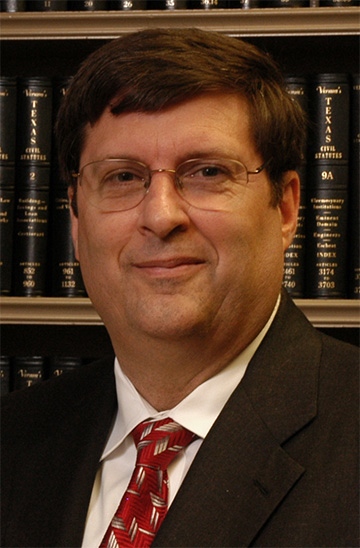-
Texas Knight
- Current Issue
- Archive
- About
- Contact
 Texas Knight
Menu
Texas Knight
Menu
Vol. 2, 2024 - 2025

Practical Catholicity - Section 168.1 (ODR)
Section 168.1 of the Laws of the Order provides that “[a]ny member of this Order shall, ipso facto, forfeit his membership in the Order . . . [w]ho shall fail to remain a practical Catholic in union with the Holy See.”At its meeting in San Antonio, Texas, on August 8, 2013, the Supreme Council unanimously passed a resolution, submitted by the State of Louisiana, confirming the Order's longstanding practice of deferring to the judgment of priests and bishops to determine the practical Catholicity of members of the Knights of Columbus.
Priests and bishops, by virtue of their training and experience, understand that determining a member’s practical Catholicity is a pastoral decision that requires consideration of numerous factors. It has been the longstanding practice of the Knights of Columbus that in questions relating to a member’s practical Catholicity, Council officers recognize and defer to the judgment of appropriate ecclesiastical authorities, in most instances that of their Council Chaplain.
Accordingly, in applying Section 168.1 of the Laws of the Knights of Columbus, the Knights of Columbus will respect and defer to the judgment of priests and bishops in determining the practical Catholicity of such member.
INSURANCE
ODR under Council and Assembly Issues, 8. Insurance
Here is the contact information for Lockton Affinity Insurance, which will issue the parish and Diocese Certificate of Insurance, naming the parish and Diocese as additional insured.
The Supreme Council encourages all state and local councils to consider this program carefully. For more information, or for a free, no-obligation quote please contact Lockton Affinity at 1-800-496-0288. You may also contact them by email at CouncilInsurance@locktonaffinity.com or visit them online athttp://councilinsuranceprogram.com/
Available Coverages:
Property, Liability. Hired and Non-Owned Auto, Liquor Liability. Workers Compensation, Business Auto, Employee Dishonesty, Crime Coverage, Special Events Coverage, Umbrella Liability, Sexual Abuse and Molestation.
Charity and other Supreme and Texas fees
Charity – our 1st principle.
YOUR COUNCIL DUES ARE BASED ON SUPREME & TSC FEES and CHARITY - - YOU MUST PAY THOSE TO SUPREME AND TSC
Bylaws Online — Section 3. Each member shall pay annual dues. The annual dues of members shall be <Council Dues Amount>, except honorary members who shall pay the sum of State and Supreme Council per capita charges and levies
Dues – based on Supreme and Texas fees - - money must be sent to Supreme and Texas State Council
COUNCIL DUES WHICH INCLUDE SUPREME & TSC FEES AND CHARITY - - YOU MUST PAY THOSE ASSESSMENTS TO SUPREME AND TSC.
FAILURE TO PAY:
Credit Cards
CAUTION is the word.From the ODR:
a. Obtaining and Issuing Cards
The council is responsible for obtaining any credit/debit cards for its cardholders and establishing the credit or withdrawal limits for each card.The Treasurer shall issue the credit/debit cards to each cardholder.The credit/debit card is the property of the council.
Prior to receiving a card, each cardholder is required to sign the "Cardholder Agreement" (“Agreement”) found below and send the executed Agreement to the Financial Secretary.Any cardholders who violate the Agreement, these rules, or the Order’s rules for handling funds should have their card privileges revoked and may be subject to disciplinary action.
b. Types of Expenses
Council credit/debit cards shall only be used to pay for council-related expenses.Personal purchases of any type are strictly prohibited. The cardholder is responsible for all charges made on that card that is issued to him. The cardholder will be held liable for any unauthorized charges appearing on the card statement.
All council expenditures must be authorized and approved for payment in accordance with the Laws of the Knights of Columbus.Any expenditures that exceed $500 must be approved in accordance with the requirements set forth within Section 122(b) of the Laws of the Order.
b. Requirement to Obtain Alert Notifications (section is marked “b” again)
If the company that issued the card offers cardholders the option to receive alert notifications, the council is required to instruct the card company to issue alert notifications to each cardholder.
c. Procedures for Using a Credit/Debit Card
Before any purchase or payment is made, the cardholder must confirm that the expenditure has been authorized and approved by the council and a voucher (also known as an Order on Treasurer or a Warrant Voucher) has been issued by the Financial Secretary and countersigned by the Grand Knight in compliance with the Laws of the Order.
©2024 Texas State Council. All rights reserved.
6633 Hwy 290 East, Ste 204 Austin, TX 78723